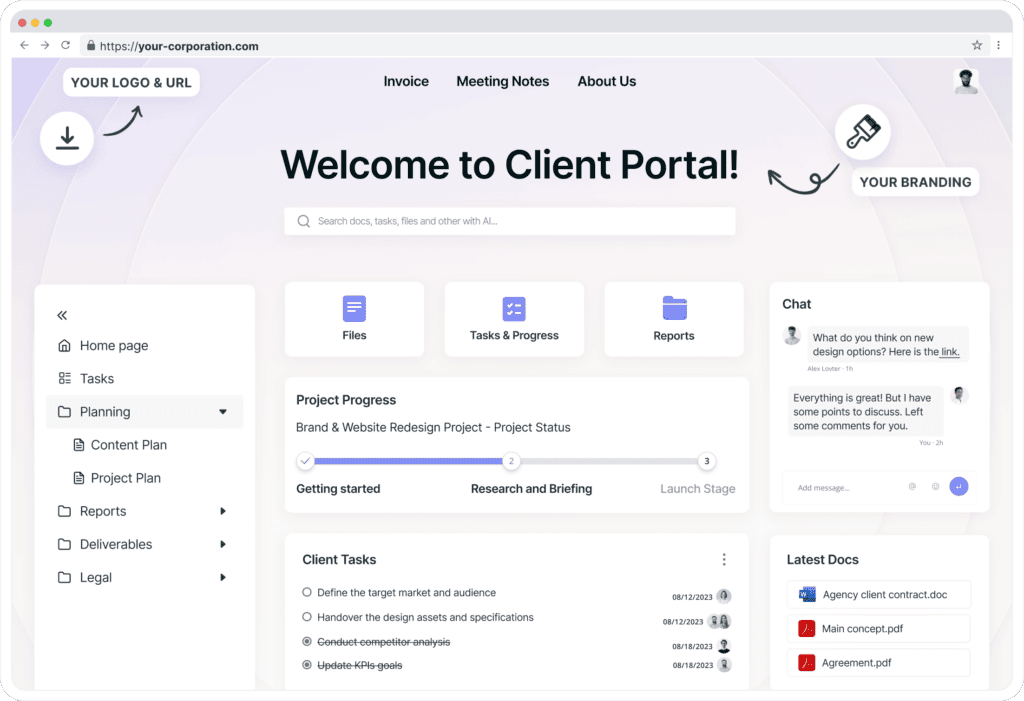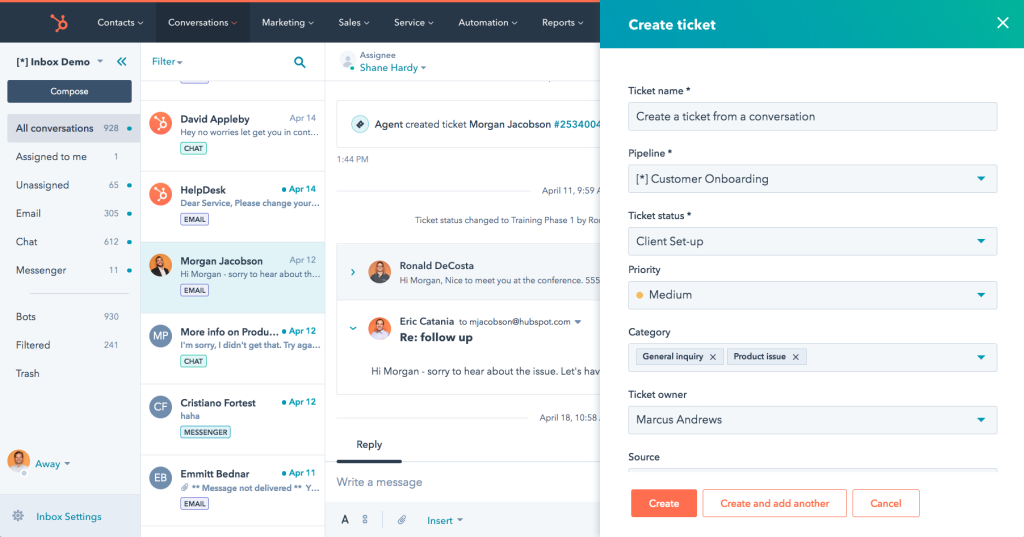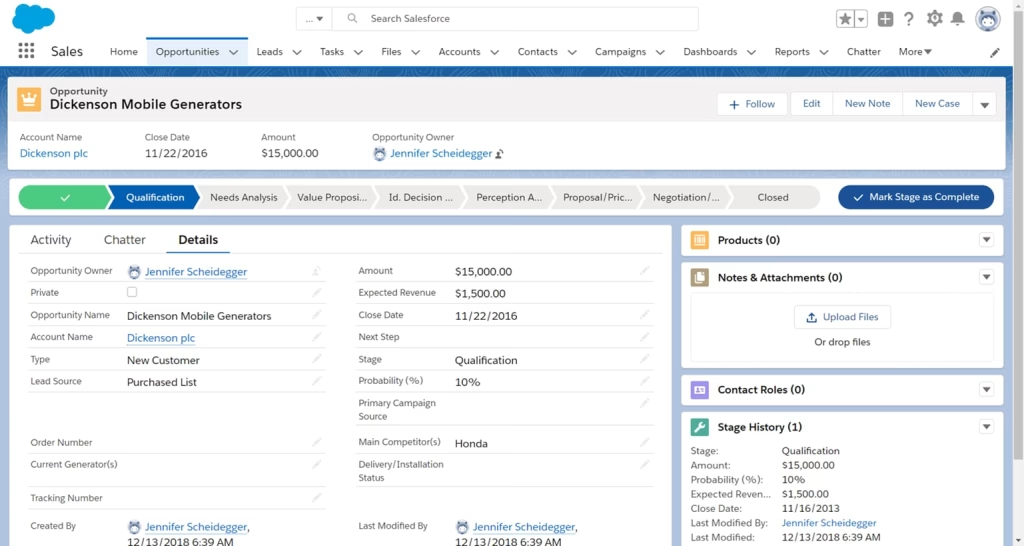
Managing a business involves juggling multiple priorities and making strategic decisions. While having an excellent product or service is fundamental, ensuring a steady stream of revenue depends on nurturing strong client relationships. Research shows that retaining existing clients is far more cost-effective than constantly pursuing new ones. Moreover, happy clients often become advocates for your brand, bringing in valuable referrals that fuel sustainable growth. This highlights the growing importance of mastering client relationships as a cornerstone for long-term business success in today’s competitive environment.
What is Client Management?
Effective client management also enables businesses to adapt to shifting market demands and evolving customer expectations. By leveraging tools and strategies that prioritize seamless communication, proactive problem-solving, and data-driven insights, companies can stay ahead of competitors and anticipate their clients’ needs.
Technology plays a critical role in this process. Solutions like customer relationship management (CRM) software or client portal tools, such as FuseBase, empower businesses to streamline interactions, centralize client information, and offer personalized services at scale. These tools not only improve operational efficiency but also create a consistent and reliable client experience.
Ultimately, mastering client management is about more than maintaining business relationships—it’s about building partnerships based on trust, collaboration, and mutual growth. Organizations that invest in cultivating these connections will reap the rewards of increased customer loyalty, sustained revenue growth, and a thriving reputation in their industry.
Fundamental Elements of Client Management
Mastering client relationships begins with understanding the core elements that drive effective client management. These foundational aspects help businesses build trust, enhance satisfaction, and foster long-term loyalty.
1. Clear Communication
Effective communication is the cornerstone of successful client relationships. Keeping clients informed, addressing their concerns promptly, and maintaining transparency establish trust and confidence.
2. Personalization
Tailoring experiences to meet individual client needs demonstrates a genuine understanding of their preferences and expectations. Personalized interactions create a sense of value, setting your business apart from competitors.
3. Consistency and Reliability
Clients value consistency in service delivery and reliability in fulfilling promises. Meeting deadlines, delivering quality, and ensuring a seamless experience are essential for building credibility.
4. Active Listening
Understanding clients’ concerns and feedback requires active listening. By prioritizing their input, businesses can adjust strategies to better serve their needs, creating a collaborative and client-focused approach.
5. Proactive Problem-Solving
Anticipating client challenges and providing solutions before issues arise demonstrates a commitment to their success. Proactivity strengthens the partnership and builds lasting loyalty.
6. Continuous Improvement
Adapting to changing client expectations and leveraging new technologies to improve service delivery is key. Staying ahead of trends ensures clients continue to see value in your relationship.
By focusing on these elements, businesses can create meaningful relationships that not only satisfy clients but also transform them into long-term advocates.
Key Principles of Customer Relationship Management
- Customer-Centric Approach
Put the customer at the heart of every decision. Understand their needs, preferences, and feedback to deliver personalized experiences that drive satisfaction and loyalty. - Consistent Communication
Maintain clear, open, and regular communication across all touchpoints. Transparency and responsiveness build trust and ensure clients feel valued. - Data-Driven Insights
Leverage customer data to gain actionable insights. Use these insights to anticipate needs, solve problems proactively, and continuously improve the customer experience. - Long-Term Relationship Building
Focus on creating meaningful, lasting connections rather than transactional interactions. Loyal customers are more likely to become advocates for your brand. - Adaptability and Innovation
Stay agile in addressing evolving customer expectations. Embrace new technologies and strategies to enhance engagement and maintain a competitive edge. - Empowerment Through Technology
Utilize robust CRM tools, such as FuseBase, to streamline processes, centralize client interactions, and deliver seamless service.
These principles form the foundation for effective customer relationship management, driving growth and fostering client loyalty.
Mastering Client Relationships: Key Strategies for Growth
Building strong client relationships is crucial for fostering loyalty and driving business growth. By focusing on effective communication, trust, and proactive engagement, businesses can create lasting partnerships. Here are key strategies to master client relationships:
- Emphasize Transparency
Be upfront about progress, challenges, and any changes that might affect the client. Honest communication builds trust and strengthens long-term connections. - Communicate Proactively
Maintain open channels for updates and feedback. Regularly touch base to ensure clients feel valued and their concerns are addressed promptly. - Set Clear Expectations
From the outset, define project scope, deliverables, and timelines. Clarity reduces misunderstandings and sets the stage for mutual success. - Follow Up Consistently
Show clients they matter by following up after interactions or project completions. A simple check-in reinforces your commitment to their satisfaction. - Respect Their Time
Demonstrate professionalism by minimizing delays and ensuring efficient processes. Respecting clients’ time reflects your dedication to excellence.
By mastering these strategies, businesses can cultivate meaningful relationships that fuel growth and customer loyalty.
Top 5 Tools for Mastering Client Relationships
1. FuseBase
A powerful client portal tool that streamlines communication, enhances collaboration, and centralizes all client interactions. Features include personalized dashboards, task management, and automated workflows to build stronger relationships and drive growth.

🌟 Example of how Smart Portals transform your work:
2. HubSpot CRM
An intuitive platform offering lead tracking, email automation, and customer insights to help businesses manage and grow their client base effectively.

3. Salesforce
A robust CRM solution that provides advanced analytics, customizable dashboards, and seamless integration with other tools to optimize client interactions.

4. Zendesk
Ideal for customer support, Zendesk helps businesses address client concerns quickly, ensuring satisfaction and fostering loyalty.

5. Slack
A versatile communication platform that allows real-time collaboration, keeping teams and clients aligned for efficient project execution.

All these tools empower businesses to nurture relationships, increase client retention, and achieve sustainable growth.
🌟 Another example of how Client Management Software can transform your work:
Wraping Up
In a world where consumers have a powerful online presence, effective client management is essential for building a strong brand reputation. A single negative experience can spread rapidly, while excellent client relationships inspire loyalty and advocacy, setting your business apart from competitors.
Investing in adaptable client management tools is critical for long-term success. FuseBase excels with its user-friendly interface, advanced features, and exceptional support, making it a standout choice.
Discover how FuseBase can transform your client relationships—experience it for yourself today.

